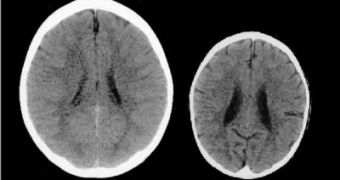Neuroscience researchers are launching a five year project to understand how sensory deprivation in children may lead to abnormal brain function as adults.
"We will study activity-dependent changes in the way the brain is organized and how neurons, the cells of the brain, are interconnected and function," says Bill Flynn, principal investigator and director of UW's Neuroscience Program. He says the research will advance understanding of plasticity -- the nervous system's ability to change in response to the environment, experiences, or trauma.
Children who experience sensory neglect through isolation or visual birth defects (such as the presence of cataracts) display cognitive disabilities as adults, Flynn says. Some abnormal brain function may be reversible, depending on when and for how long the depravation occurs during critical periods of development. As such, research to identify mechanisms underlying activity-induced plasticity of the brain and whether there are critical periods during development when the brain is most susceptible to sensory experience has immediate health relevance.
The investigators will work on interrelated projects that seek to understand how the structure and organization of the brain and spinal cord adapt to changes in sensory (light, touch, pain) information. The scientific objective is to identify how different types of sensory stimulation affect the organization, development, and function of neural systems.
Projects will approach this fundamental issue in several ways. "For example, we know that during early brain development, neurons in the brain establish connections with other neurons that are then refined by experience," Flynn says. "Project researchers will identify how sensory experience controls that refinement from an immature to a normal, adult-function brain."
Other project researchers are studying how the pathways that relay pain information normally develop and how they may be adversely affected to produce states such as chronic pain.
"So we are looking at a number of sensory systems, how they may change, and how they may affect the animal's behavior," Flynn says.

 14 DAY TRIAL //
14 DAY TRIAL //